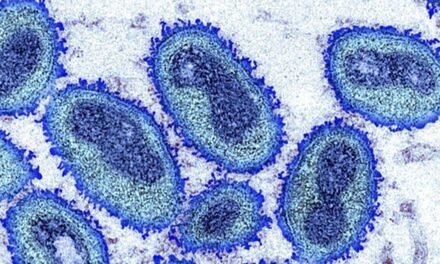Chicago, June 29, 2024 – A new study conducted on mice suggests that a simple dietary change, such as a fish oil supplement taken by fathers, might help address the escalating issue of childhood obesity. This research offers a potential new tool to combat the global health crisis affecting millions of children.
According to the World Health Organization, the number of young people aged 5 to 19 who are obese has skyrocketed from 31 million in 1990 to 160 million in 2022. Childhood obesity is associated with increased risks of diabetes, high blood pressure, high cholesterol, and can also lead to poor self-esteem and depression.
To investigate whether a father’s diet could influence the health of their offspring, researchers fed male mice a high-fat diet with or without added fish oil. The findings revealed that the offspring of the males that consumed fish oil had lower body weight and better metabolic health compared to the offspring of fathers who did not receive the supplement.
Pioneering Research in Paternal Influence
Dr. Latha Ramalingam, an Assistant Professor in Nutrition at Syracuse University, along with her team, has been pioneering this research. Sarah Dellet, a graduate student in Ramalingam’s lab, presented these findings at NUTRITION 2024, the annual meeting of the American Society for Nutrition held in Chicago from June 29 to July 2.
“This concept offers a significant potential to reshape our strategies in combating childhood obesity,” said Dr. Ramalingam. “Picture a future where pre-conception dietary guidance isn’t solely directed at mothers but also involves fathers, enabling them to play a more active role in promoting their children’s well-being right from the start.”
Study Details and Results
The study, involving nearly 150 mice, explored inheritance patterns exclusively in the paternal line. Building on previous work that demonstrated the benefits of fish oil supplementation in mothers for reducing childhood obesity risk, the new study fed male mice a high-fat diet either with or without added fish oil before mating them with female mice on a regular healthy low-fat diet.
The results showed that offspring fed a low-fat healthy diet and fathered by males receiving fish oil weighed less at 7 and 21 days than those fathered by males not receiving fish oil. Additionally, female offspring from males receiving fish oil exhibited improved metabolic health, evidenced by better glucose clearance and insulin sensitivity.
Future Research Directions
The researchers are now delving deeper into the potential mechanisms through which dietary changes affect sperm, aiming to understand how this information transfer influences the next generation. They are also examining muscle and liver gene expression to uncover the genetic foundation of the enhanced insulin sensitivity observed in female offspring.
While further human studies are needed to confirm these findings, this discovery opens new avenues in understanding how parental influences, beyond just genetics, can impact offspring health. Fish oil, a readily available and safe supplement, could become a powerful weapon in the fight for a healthier next generation.











